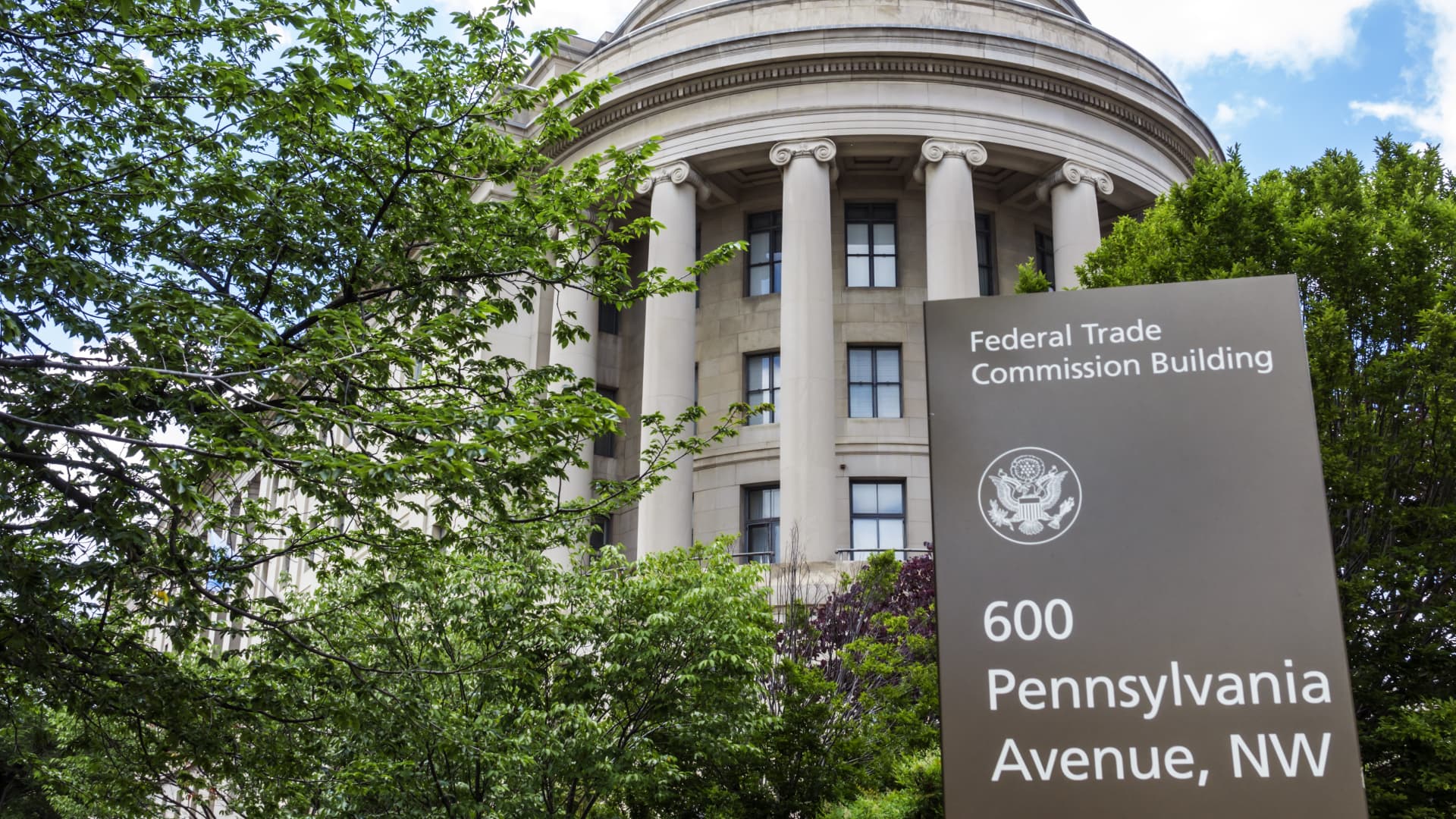The franchising business is bracing to see whether or not the U.S. will change the way it regulates a construction that fuels manufacturers from McDonald’s to Marriott.
Final month, the Federal Commerce Fee wrapped up a public remark interval in response to its request for data on the sector and its enterprise practices. The company sought enter from stakeholders, together with franchise operators, employees and father or mother firms, because it scrutinizes franchising practices.
The transfer instructed the FTC is doubtlessly contemplating nearer regulation of the sector — with massive implications for a number of the largest restaurant and hospitality corporations within the U.S. and their workers. The company declined to touch upon any potential modifications or once they may come.
Now the business awaits an final result.
The FTC informed CNBC it obtained greater than 5,500 feedback on the inquiry, indicating “broad curiosity in guaranteeing equity in franchising.”
“We’re totally reviewing every remark and are assessing subsequent steps. All choices are on the desk,” an FTC spokesperson stated in a press release. The company’s assertion earlier this 12 months on its request for data stated it “would start to unravel how the unequal bargaining energy inherent in [franchise] contracts is impacting franchisees, employees, and customers.”
Franchising is a significant contributor to the U.S. financial system. The Worldwide Franchise Affiliation, the business’s main advocate, says its membership covers greater than 300 enterprise format classes and a few 800,000 companies within the nation that make use of thousands and thousands of employees.
A possible change to franchise rules suits into the FTC’s broader oversight agenda, because the company proposes banning noncompete clauses and considers whether or not the coverage ought to apply to clauses between franchisors and franchisees. FTC Chair Lina Khan’s regulatory push has additionally focused company giants like Microsoft and Activision, Twitter and Amazon.
Except for potential rulemaking shifts on the FTC, the business can also be looking forward to modifications to joint employer guidelines and native rules like AB 1228 in California, each of which stand to shift extra legal responsibility to father or mother corporations of franchised companies.
Business watchers say an preliminary proposal from the FTC on franchise rule amendments may come as quickly as the tip of 12 months. In its submission to the FTC, the IFA raised issues about how the FTC may use the general public feedback to form new guidelines.
“We’re notably troubled that the Fee may depend on these anecdotal accounts, together with many made anonymously, to interact in a proper rulemaking course of that might halt the expansion of franchised companies with overly restrictive regulation of franchise relationships, to the detriment of customers, enterprise house owners and employees,” the advocacy group stated.
IFA President and CEO Matt Haller stated the group is anxious about “one-size-fits-all” regulatory modifications. Prospects need a constant expertise, but in addition one which evolves to satisfy their wants, he stated.
“If the FTC limits the flexibility for franchisors to evolve their programs to satisfy prospects’ calls for, then that is negatively going to influence franchisees, as a result of prospects will cease patronizing these companies if they don’t seem to be in a position to get the services and products they need in a constant and handy trend,” Haller stated in an interview, pointing to profitable working modifications that franchisors made in the course of the pandemic for instance.
Some labor advocates hope potential oversight modifications enhance working circumstances for franchised workers. In its submission, the Service Staff Worldwide Union and the Strategic Organizing Heart had pointed phrases about franchising and employee relationships.
“The extractive franchise mannequin, primarily based on franchisors having meticulous management over – however nearly no duty for – quite a few small companies, ends in lowmargin companies below fixed stress to scale back prices and reduce corners, wherein labor prices are nearly the one price variable the franchisees management. Our proof of employee hurt demonstrates that employees in the end bear the brunt of this exploitative system designed primarily to complement the agency on the high – the franchisor,” the teams’ feedback stated.
Main manufacturers that use the mannequin together with Marriott, Hilton, Yum! Manufacturers and Sport Clips, together with franchisees, submitted commentary highlighting the optimistic facets of franchising. Some urged the FTC to not make regulatory modifications or deal with the business as one, as many ideas function below the broader sector’s umbrella.
McDonald’s was among the many giant restaurant manufacturers that noticed feedback submitted to the FTC from each operators and the company. The Nationwide House owners Affiliation, an advocacy group of over 1,000 McDonald’s franchisees, inspired its membership to submit feedback to the FTC on each franchising and noncompete clauses present in its contracts.
Some house owners have clashed with the quick meals large over modifications its made during the last 12 months to how eating places are graded and the way franchise contracts are renewed.
The NOA’s public submission stated, “The McDonald’s system was, and will once more be, the gold normal for the franchise enterprise mannequin. The feedback and examples offered right here by members of the NOA are supposed to illustrate how time has not made the franchisee-franchisor mannequin stronger, however sadly extra adversarial, much less cooperative, and severely fractured.”
In a press release to CNBC on the FTC’s request for public remark, McDonald’s highlighted the function its franchise system performs in boosting small enterprise house owners and creating jobs. McDonald’s stated it shares the company’s view that the mannequin ought to profit “everybody: prospects, franchisees, employees, suppliers, franchisors, and native communities,” including, “that is exactly what our franchise system has executed for over six a long time.”
“Our franchise mannequin thrives on having a typical set of requirements and necessities that guarantee equitable remedy of franchisees, safety of franchisee investments and secured worth for the McDonald’s model,” the corporate stated. “A one-size-fits-all regulation threatens the profitable investments these small enterprise house owners have made in themselves and their communities.”
The Nationwide Franchisee Management Alliance’s Chair Danielle Marasco echoed that sentiment in a press release shared with CNBC.
“The NFLA, the one elected consultant voice of McDonald’s franchisee organizations throughout the U.S., is against any regulation that might undermine our franchise system and threaten our impartial possession rights,” Marasco stated. “Since McDonald’s founding in 1955, our franchising mannequin has efficiently served the model, franchisees, workers and the native communities we function in.”

Related posts
Subscribe
* You will receive the latest news and updates!
Quick Cook!
Is it Unlawful to Demand a Return to Workplace?
The patterns of distant and versatile working that adopted the COVID-19 pandemic and lockdown restrictions are starting to waver, with…
The Startup Journal The way to Safe Short-term Startup Funding If You Don’t Have Traders But
Beginning a brand new enterprise is an thrilling journey, but it surely usually requires a big sum of money to…



